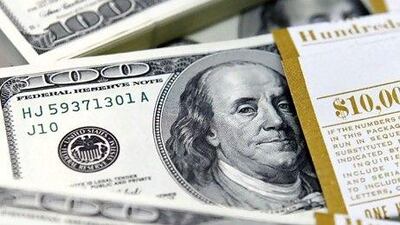Is the so-called haven status of US Treasury bonds declining? Markets seem to think so, as investors sight juicier gains elsewhere.
This month, the government securities experienced their longest run of declines since 1985 as investors switched out of so-called "risk-free" assets for riskier equity bets to take advantage of a more muscular recovery from crisis in the US than previously seen.
Yields, which move in the opposite direction to bond prices, are at 2.19 per cent, having reached 2.37 per cent earlier in the month, from 1.96 per cent at the start of the year. After a sell-off last week, the gains have resumed, with yields rising to 2.25 per cent.
"The rapid decline in the US unemployment rate since last autumn has ignited discussion of how long exceptionally accommodative monetary policy is likely to last," analysts from Capital Economics wrote in a research report.
"This, in turn, has put some upward pressure on Treasury yields, although this was partly reversed last week following weaker economic data out of the euro zone and China."
The bet is that low interest rates amid firmer signs of growth could signal higher inflation, and equities are the best way to take advantage of that, wrote Bob Doll, the chief strategist for fundamental equities at BlackRock.
The logic of investing in treasuries turns on whether the value of their yields - currently negative in real terms - is outweighed by the presumed safety of holding debt with the seal of the US government.
That reputation took a severe beating during the rancorous debate last summer over whether to raise the country's debt ceiling, which was ultimately lifted to US$16.39 trillion.
But could the issue rear its head again? The White House's office of management and budget expects the total debt of the United States to bump against the ceiling - or certainly come close to it - at some point this year. As such, the tax take next month, the deadline for American individuals and companies to file their returns for 2011, will be keenly watched.
If the debt limit is projected to be reached after the presidential election, investors can expect to avoid a congressional stand-off as politicians try to burnish their deficit-busting credentials. If it becomes an election issue, all bets are off.
twitter: Follow our breaking business news and retweet to your followers. Follow us

